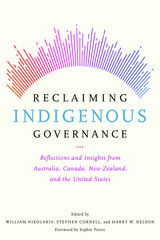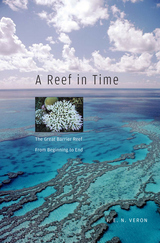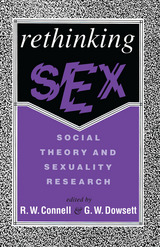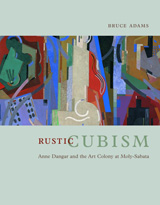7 start with R start with R

Mike Cole tackles three countries in-depth: the United Kingdom, the United States and Australia. In the United Kingdom, he focuses on the effects of colonialism as well as looking at non-colour-coded racism, such as anti-Gipsy, Roma, and Traveller racism and xeno-racism directed at Eastern Europeans. Turning to the United States, Cole charts the dual legacies of indigenous genocide and slavery, as well as exploring anti-Latina/o and anti-Asian racism. Finally, in Australia, he interrogates the idea of "Terra Nullius" and its ongoing impact on the indigenous peoples, as well as other forms of racism, such as that experienced by South Sea Islanders, anti-Asian racism, and that which targets migrants. The Pauline Hanson phenomenon is also addressed. Islamophobia, antisemitism and anti-Irish racism are also dealt with in the book, as is that aimed at asylum-seekers.
Cole demonstrates that racism is both endemic and multifaceted. This book will undoubtedly establish itself as required reading for students and other critical readers looking for a comprehensive, critical overview of the study of racism in Anglophone countries.

Indigenous governance is dynamic, an ongoing relationship between Indigenous peoples and settler-states. The relationship may be vigorously contested, but it is often fragile—one that ebbs and flows, where hard-won gains can be swiftly lost by the policy reversals of central governments. The legacy of colonial relationships continues to limit advances in self-government.
Yet Indigenous peoples in the CANZUS countries are no strangers to setbacks, and their growing movement provides ample evidence of resilience, resourcefulness, and determination to take back control of their own destiny. Demonstrating the struggles and achievements of Indigenous peoples, the chapter authors draw on the wisdom of Indigenous leaders and others involved in rebuilding institutions for governance, strategic issues, and managing lands and resources.
This volume brings together the experiences, reflections, and insights of practitioners confronting the challenges of governing, as well as researchers seeking to learn what Indigenous governing involves in these contexts. Three things emerge: the enormity of the Indigenous governance task, the creative agency of Indigenous peoples determined to pursue their own objectives, and the diverse paths they choose to reach their goal.

Like many coral specialists fifteen years ago, J. E. N. Veron thought Australia's Great Barrier Reef was impervious to climate change. "Owned by a prosperous country and accorded the protection it deserves, it would surely not go the way of the Amazon rain forest or the parklands of Africa, but would endure forever. That is what I thought once, but I think it no longer." This book is Veron's Silent Spring for the world's coral reefs.
Veron presents the geological history of the reef, the biology of coral reef ecosystems, and a primer on what we know about climate change. He concludes that the Great Barrier Reef and, indeed, most coral reefs will be dead from mass bleaching and irreversible acidification within the coming century unless greenhouse gas emissions are curbed. If we don't have the political will to confront the plight of the world's reefs, he argues, current processes already in motion will become unstoppable, bringing on a mass extinction the world has not seen for 65 million years.
Our species has cracked its own genetic code and sent representatives of its kind to the moon--we can certainly save the world's reefs if we want to. But to achieve this goal, we must devote scientific expertise and political muscle to the development of green technologies that will dramatically reduce greenhouse emissions and reverse acidification of the oceans.

During the 1980s and early 1990s, Australia and New Zealand extensively deregulated their economies to create two of the most open markets in the industrialized world. Drawing on interviews with more than 180 leading policymakers in Australia and New Zealand—including former prime ministers, ministers of finance, treasurers, and public servants—Shaun Goldfinch analyzes the factors that made the deregulation process different in each country.
Describing specific policies—including liberalization of financial and capital markets, lowering of trade barriers, the floating of the exchange rate, and privatization—he compares the "crash-through" approach that characterized reform in New Zealand with the "bargained consensus" that underpinned change in Australia. In Australia, influences on policy were relatively diffuse and implementations open and decentralized. New Zealand’s more centralized government structure resulted in a concentration of influence and less deliberation. He contrasts rapid and gradual change, arguing that the latter may yield better policy results and prevent political instability.
Shedding new light on the economic policymaking process, including the role of economic ideas, institutions, and policy elites, this book will appeal to both students and professionals in interested in public policy, comparative politics, and economics.



In part a gripping biography of this Australian expatriate, Rustic Cubism chronicles Dangar's personal battles and the tumult of the World War II era during her tempestuous tenure at Moly-Sabata. Dangar dedicated herself to the colony's aims by working in the region's village potteries, combining their vernacular elements with Gleizes' design methods to arrive at a type of rustic Cubism. Her work there would ultimately be rewarded; her pieces can today be found in the Musée des Arts Décoratifs in Paris, the Musée d'Art Moderne de la Ville de Paris, the Museo Internazionale delle Ceramiche in Faenza, the National Gallery of Australia, Canberra, and many other museums.
Rustic Cubism places Dangar at the heart of Moly-Sabata's alternative art movement—one that, in its nostalgic present, attempted to construct a culture based on the distant past. Generously illustrated with photographs of the art and social milieu of the period, this captivating and original narrative makes a considerable contribution to our understanding of French modernism and early twentieth-century cultural politics as well as of the life of a most talented and intriguing female artist.
READERS
Browse our collection.
PUBLISHERS
See BiblioVault's publisher services.
STUDENT SERVICES
Files for college accessibility offices.
UChicago Accessibility Resources
home | accessibility | search | about | contact us
BiblioVault ® 2001 - 2024
The University of Chicago Press









